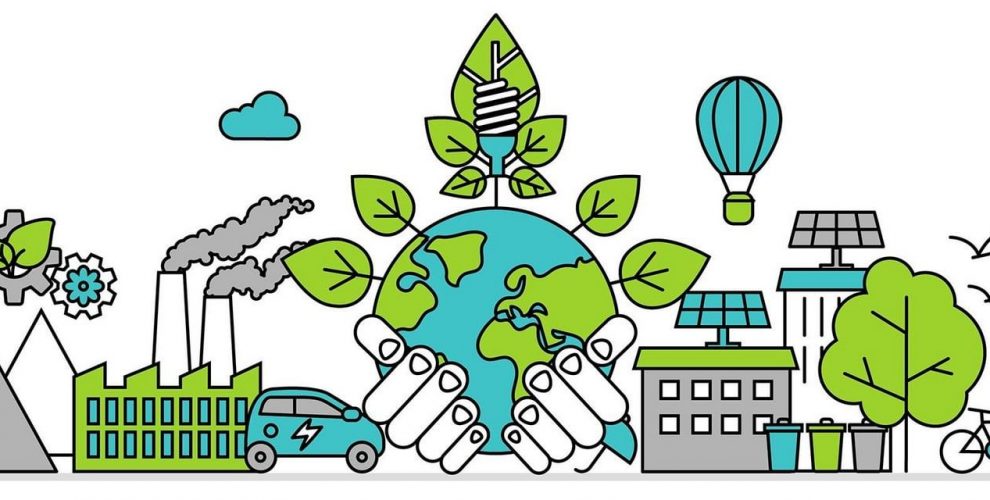The processes of globalization cause new phenomena to emerge in international relations, which include environmental or “green diplomacy”. The relevance of considering the problems of implementing “Green diplomacy” stems from the fact that at present, it is beginning to be increasingly used by states as a means of implementing their international legal policy in the environmental sphere. At the same time, there is no consensus in the international sphere regarding the content of this concept and its essence.
The unity of the ecosystem makes the environmental problems of one state the problems of its neighbors and sometimes the entire international community. The environment is comprehensive and its condition as a whole depends on the condition of its individual segments. It is the processes of globalization and the formation of international law in the logical sphere that made it possible for such a phenomenon as environmental or “Green diplomacy” to emerge. These terms refer to diplomatic relations, the subject of which is environmental protection. Environmental or green diplomacy is an instrument for implementing the relevant international legal policy. This type of policy gives states the opportunity to find a balance between their national and international interests in the environmental sphere in the context of globalization.
According to the Leader of the Nation, the President of the Republic of Tajikistan, “Soft power” is “A set of tools and methods for achieving foreign policy goals without the use of weapons, but through information and other levers of influence.” “Green diplomacy” can also contribute to the development of investments in the “Green sectors of the economy,” which is again one of the factors in the further development of globalization processes. Thus, both “Soft power” and “Green diplomacy” are based, first of all, on persuasion. Due to this, it is soft power that is the basis of “green diplomacy.”
Therefore, this type of diplomacy is most closely related to the ongoing globalization processes. The term “Environmental diplomacy” is used in Chinese legal science. Environmental or “Green diplomacy” is actively used by: Japan, China, South Korea, the United States, and the European Union. At the same time, the meaning that states put into this concept is not always the same, as is the intensity of its use. South Korea is actively implementing “environmental diplomacy.” For South Korea, this is cooperation in the exchange of “Green technologies” and their dissemination to prevent a global environmental disaster. In these matters, it cooperates with the United States, China, Russia, Japan and other countries. The international legal policy is aimed at developing international cooperation in the field of implementing “Green technologies” and comprehensive environmental protection, and predetermines the use of “Green diplomacy” by the state. South Korea and Taiwan try to maintain a balance between national and international interests in their “Green diplomacy”. Thus, the United States like China use “Green diplomacy” to a greater extent to achieve their national interests than for their common good.
It should be noted that in the Tajik foreign policy, “Green diplomacy” has not yet taken such a place as in the above-mentioned states. Today, in the foreign policy of the Republic of Tajikistan, the water and energy issue is of priority importance, since the effectiveness of water diplomacy will determine the solution of a number of socio-economic problems.
The first stage of the development of water diplomacy as “Green diplomacy” of the Republic of Tajikistan is characterized as a stage of forming an independent direction of foreign policy and conducting common tasks of the region. At this stage, an agreement was signed that determined the further policy of the countries of the region in this matter; the foundation for mutual relations of countries in this area was laid.
The second stage of the formation of water diplomacy of the Republic of Tajikistan began in 2000. In the next decade, water diplomacy of the Republic of Tajikistan becomes independent and achieves great success in the international arena.
The Republic of Tajikistan and the Leader of the Tajik people the president of Tajikistan Emomali Rahmon are trying to attract the attention of the world community to solving water issues on the basis of international cooperation. The main components of Tajikistan’s international water policy are the country’s global water initiatives, which were adopted by the UN and countries of the world. The Republic of Tajikistan, actively implementing water diplomacy, sets itself the goal of playing an active role in the world arena in resolving problems related to water issues. Within the framework of this diplomacy and in light of creative initiatives in the water sphere (“International Year of Freshwater, 2003”, “International Decade “Water for Life”, 2005-2015″, International Year of Water Cooperation, 2013″), which have received high praise from the international community, it is envisaged to implement new initiatives within the framework of regional and international organizations, primarily the United Nations. The purpose of these initiatives is to emphasize the need for creative interaction in solving water problems in the interests of preserving life and sustainable development of humanity. In this regard, one of the priorities of the foreign policy of the Republic of Tajikistan is to ensure the country’s creative role in water issues in the region and on the international stage, which meets both national interests and the aspirations of the world community.
The main task of water cooperation is to solve the problem of joint use of these water basins for the benefit of all stakeholders and environmental safety, as well as turning water into an “Initiator” of cooperation and unification. The basis of water cooperation is precisely transboundary water resources and the problem of water itself on the world stage. The formation of modern water cooperation is associated with the emergence of a number of interstate, regional and international agreements in the field of water relations.
Senior Teacher, Department of International Relations and Political Science, International University of Tourism and Entrepreneurship of Tajikistan
Ikromova Mahina Numonovna
- Home
- General Information
- Academic Activity
- Strategic Development
- Science and Innovation
- International Relations
- Social Development
- Green IUTET
- Admissions






Leave a Reply